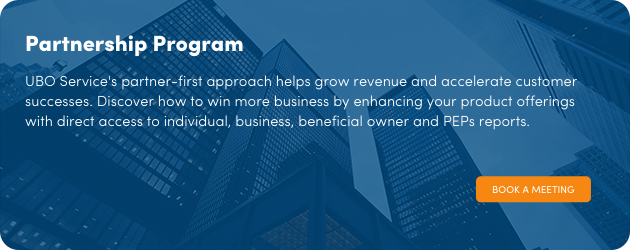RegTech Collaboration: Strengthening the Financial System
Regulators Driving Collaborations and Financial Innovation
Many issues are driving obliged entities to embrace collaboration with regtech providers. It is not only about new technologies, but the real opportunity also presented is to address Anti-Money Laundering (AML) risks and make the delivery of regulatory requirements more efficient and effective.
Regtech is being seen by regulators as key to transforming the industry as a whole and providing clarity on supervisory expectations. Regtech implementation is having an impact by improving financial institutions’ ability to analyse and report increasingly complex datasets to meet regulatory demands in a cost-efficient manner.
.png?width=333&name=21Q3_Content_Partnership__blog1A_%20(6).png) The time for collaboration is now
The time for collaboration is now
Regulators are clear that compliance cannot be compromised, they are encouraging financial institutions to have an open dialogue with their compliance personnel and senior management to share issues, requirements, and relevant solutions. Engagement and innovative collaboration are creating an AML environment with a range of stakeholders and external parties, including the wider financial industry, the academic community, technology vendors, and international supervisory organisations.
Regulators are working together toward a common AML vision. They are directing obliged entities to build trust using data management and technology. The focus of AML supervisory programs includes an enhanced risk-based approach to AML/CFT supervision:
- EBA recommends wider use of technology raising awareness of possible use cases for regtech following their Financial Reg-Tech Industry Survey.
- FATF highlighted on their New Technologies for AML-CFT report the opportunities and challenges of new technologies for AML.
- The use of regulatory compliance solutions is also stimulated by the Financial Conduct Authority (FCA) who states: “we aim to encourage the development of these technologies, as they could benefit consumers and the wider industry.” The FCA is committed to fostering innovation and technology, including regtech, to promote effective competition.
AML Challenges are Driving the Appetite for Change and Innovation
Embracing and collaborating with regtech providers can solve many AML pain points. Many of these are due to outstanding operational and regulatory constraints, such as legacy compliance systems and traditional regulatory frameworks and oversight mechanisms.
As with any third-party partnership, obliged entities need to set feasibility criteria to evaluate which applications are a fit for their specific needs and question their reliability and scalability. It is important to evaluate the different providers and explore what regtechs could offer a comprehensive approach to AML compliance.
This is a great opportunity to use technology and compliance expertise to develop and maintain efficient and innovative risk-based AML solutions that are faster and at a lower cost.
Penalties are increasing for individuals and companies for non-compliance with AML regulations. Regulators use breaches as lessons to enforce compliance but also to learn how new technologies and innovation can help obliged entities and themselves. The main objective is to strengthen the resilience of the financial system through new approaches to improve supervision, reporting, and compliance.
With potentially significant financial and even criminal penalties at stake, obliged entities must understand how regtech can help them meet their regulatory compliance obligations and protect the financial system from harm.
Supervisors and regulators acknowledge the advantages of using regtech compliance solutions as they see the benefits for consumers and the wider industry. They are trying to create an ecosystem to remove regulatory fragmentation and ensure a level playing field between incumbents and new market entrants.
Overall, regulators are promoting responsible innovation and the adoption of new technology. Traditional bank's attitudes to regtech are changing to a collaborative problem-solving solution. They need to adapt quickly to implement new processes and procedures to comply with ongoing regulations. This approach saves time and money that can be allocated to other areas to create efficiencies, consistently and drive growth across the industry.


